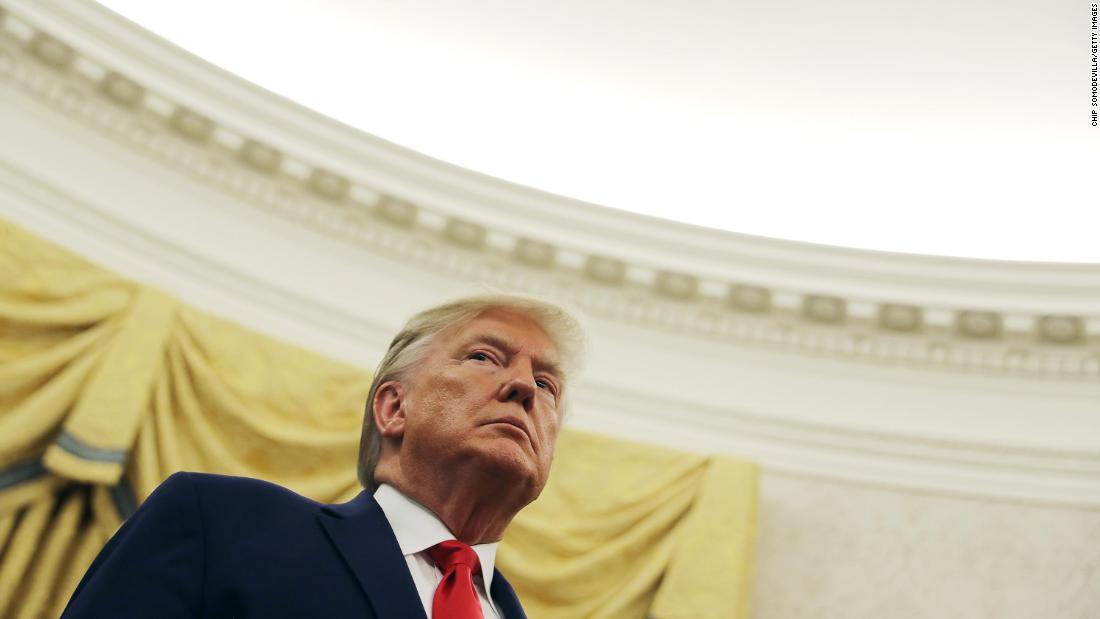
Using witness testimony from the closed-door depositions, as well as public reporting, the memo attempts to undercut several key arguments made by Democrats outlining the alleged culpability of Trump in his actions toward Ukraine, particularly in his decision to place a hold on US security assistance to the country in exchange for investigations into his political rival.
The memo marks the most centralized and detailed effort to lay out the Republican counterargument to impeachment that has been crafted and will serve as the baseline for members to utilize in their defense of Trump as the impeachment probe moves into public hearings on Wednesday.
The four central defenses, which are detailed over the course of the memo, are as follows:
- The July 25 call summary "shows no conditionality or evidence of pressure."
- Ukrainian "President (Volodymyr) Zelensky and President Trump have both said there was no pressure on the call."
- "The Ukrainian government was not aware of the hold on U.S. assistance" during the July 25 call.
- The security assistance hold was lifted on September 11.
"These four key points undercut the Democrat impeachment narrative that President Trump leveraged U.S. security assistance and a presidential meeting to force Ukraine to investigate the President's political rivals," the memo reads.
On Twitter Tuesday, Trump echoed some of the Republicans' defense, pointing to Zelensky's comments that there was "no pressure" placed on him to investigate the Bidens.
Trump claimed that the focus of the inquiry is based on second- and third-hand witnesses -- despite many of the witnesses who have testified behind closed doors having first-hand knowledge of potentially improper administration actions regarding US military aid to Ukraine.
The President also reiterated his call Tuesday for former Vice President Joe Biden and his son, Hunter Biden, to testify.
During the July 25 phone call, Zelensky brought up US military assistance to Ukraine, which has been at the center of US policy since Russia and its proxies invaded Eastern Ukraine in 2014. Zelensky told Trump he was interested in buying additional anti-tank missiles from the US.
"I would like you to do us a favor though," Trump then says, according to a rough White House transcript. He then asks Zelensky to investigate a debunked conspiracy theory about the 2016 election and allegations of corruption by the Bidens, despite no evidence of wrongdoing.
The call was included in a whistleblower's complaint that Trump abused his official powers "to solicit interference" from Ukraine in the upcoming 2020 election, and that the White House took steps to cover it up.
Trump has denied any wrongdoing and has insisted the call with Zelensky was "perfect."
Other US officials, however, got the sense that there was a quid pro quo linking US military aid to the Ukrainian investigations, according to their sworn testimony before the House committees.
This included Bill Taylor, the top US diplomat in Ukraine, who had testified that it was his "clear understanding" that US security aid to Ukraine wouldn't be released unless Zelensky announced he would investigate Trump's political rivals. Taylor is one of three officials scheduled to testify this week in the public impeachment hearings.
2019-11-12 13:18:00Z
Bagikan Berita Ini














0 Response to "House Republicans lay out central defenses of Trump in memo ahead of public impeachment hearings - CNN"
Post a Comment